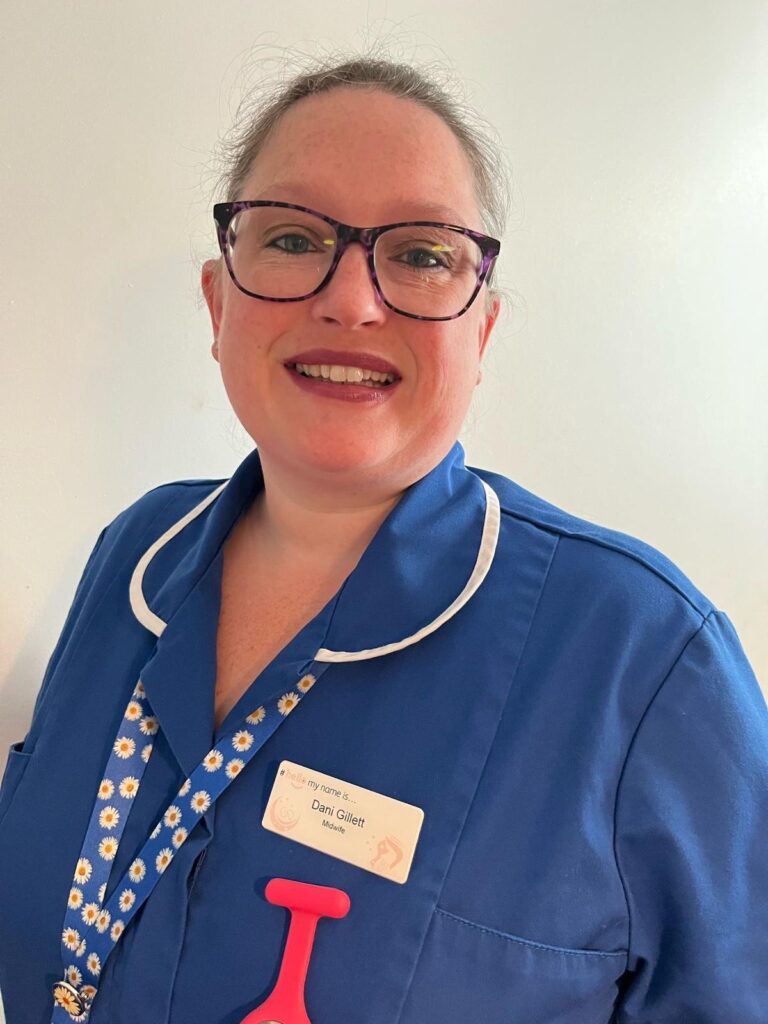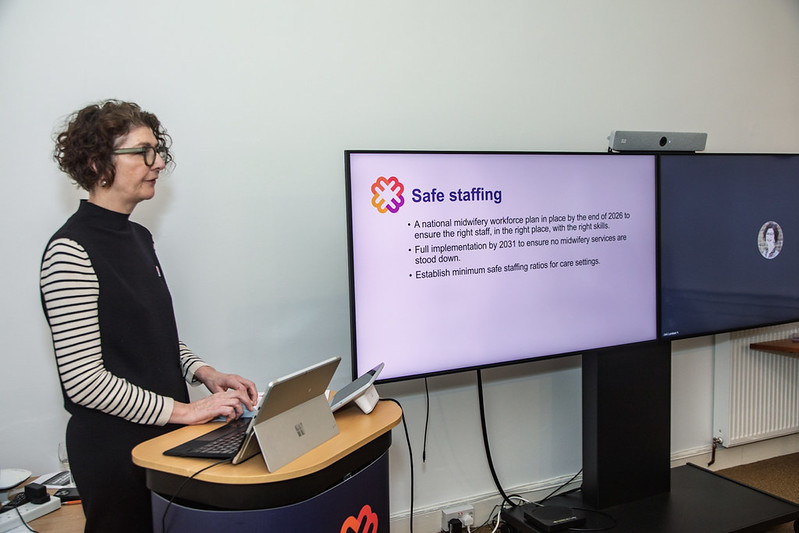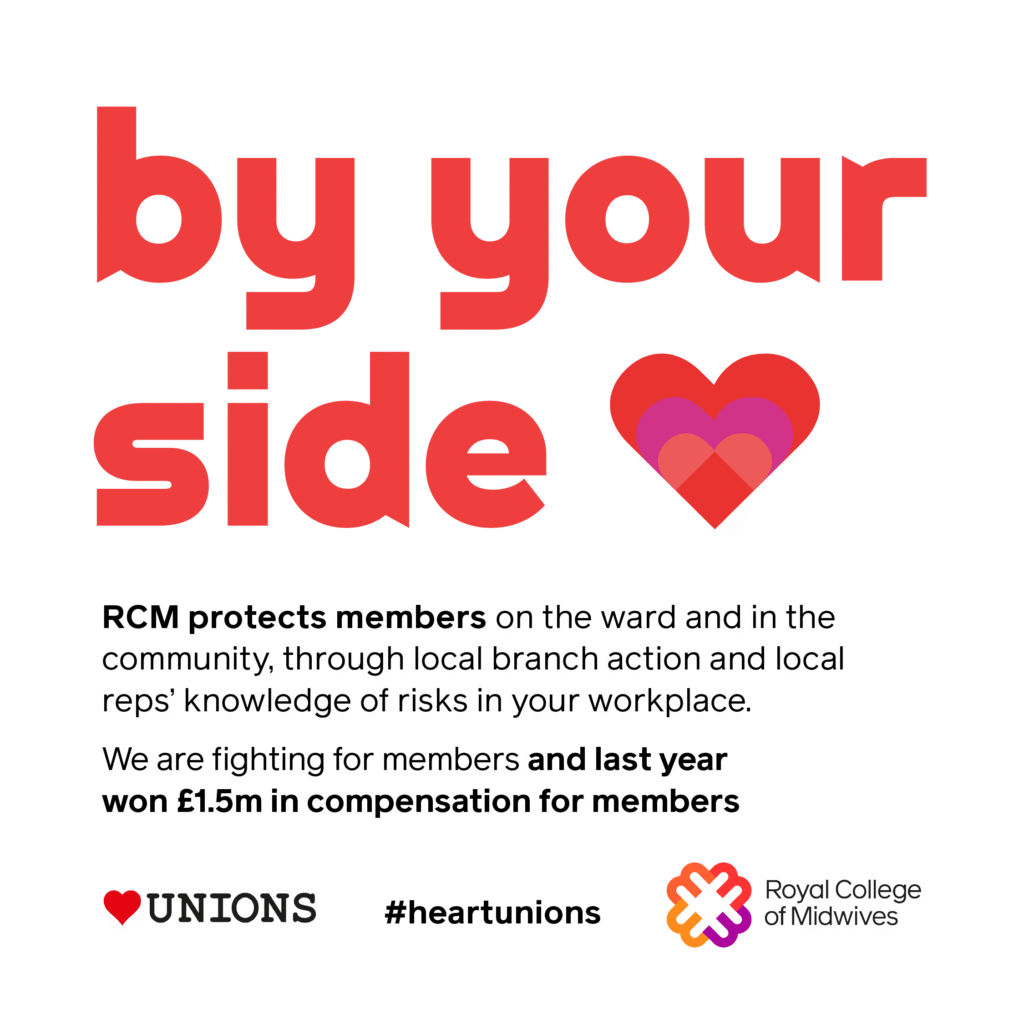When it comes to perinatal mental health, lived experience can be one of the most powerful tools for change. For many midwives, the journey into supporting others begins with their own experience of struggling in silence.
As the Royal College of Midwives launches its Perinatal Mental Health Roadmap calling for fair, consistent care across the UK, midwife Dani Gillett shares her personal story of postnatal depression, recovery, and how her baby’s smile became the moment that pulled her back,
My journey into midwifery and perinatal mental health began through my own lived experience of postnatal depression. After the birth of my first child, Annabel, I experienced the sudden onset of postnatal depression just three days postpartum. I vividly remember sitting on the sofa trying to breastfeed and feeling completely numb; no emotion, no bond, just fear and confusion.
I loved the idea of being a mother, yet I felt as though my baby had ruined my life. Feeling isolated and ashamed, I didn’t recognise that I was unwell.
My pregnancy had been difficult from the start, with severe hyperemesis gravidarum and constant anxiety. After a traumatic birth, my mental health deteriorated rapidly. Thankfully, my community midwife noticed something was wrong and referred me for help. The support I received through Sure Start counselling, peer groups, and medication wrapped around me like a blanket and became the foundation of my recovery.
Years later, when I had my second baby, Isaac, I was hit by another wave of depression. This time it was even more severe than before. I reached a point where I almost ended my life – I felt utterly hopeless and unseen by the healthcare system. It was only Isaac’s cry and the moment he smiled at me that pulled me back and reminded me that I needed to keep going. That turning point led me to seek help again and, eventually, to rebuild my life.
Learning about postnatal depression and connecting with others who had been through it helped me recover. I began volunteering with perinatal mental health charity PANDAS Foundation, later setting up a local support group and organising awareness events to educate healthcare professionals and reduce stigma. Sharing my story showed me the power of lived experience to change understanding and save lives.
My work with PANDAS inspired me to train as a midwife, driven by a desire to make a difference for women and families. Through listening to others’ birth experiences, I saw how even small acts of compassion or neglect could transform how women felt about their care.
Now, as a newly qualified midwife and Training Director at PANDAS, I combine professional practice with personal insight to support every woman I meet. My goal is simple and in line with PANDAS as a charity: to ensure no parent feels alone, unheard, or ashamed when struggling… because I know that early recognition and empathy truly does save lives.
The Royal College of Midwives has launched its Perinatal Mental Health Roadmap, calling for recommendations to improve perinatal mental health care across the UK. The recommendations include:
- More specialist midwives trained in perinatal mental health, so every woman has access to the right support wherever she lives;
- Stronger leadership roles for midwives within the NHS, to make sure women’s mental health is a priority in maternity care;
- Regular training for all midwives in understanding trauma, so women are always treated with compassion and sensitivity;
- Joined-up, culturally sensitive services, so women from every background get the care that meets their needs;
- Equal focus on mental and physical health during pregnancy and after birth, so mums aren’t left to struggle in silence.
Click here to find out more about the RCM’s Perinatal Mental Health Roadmap.


